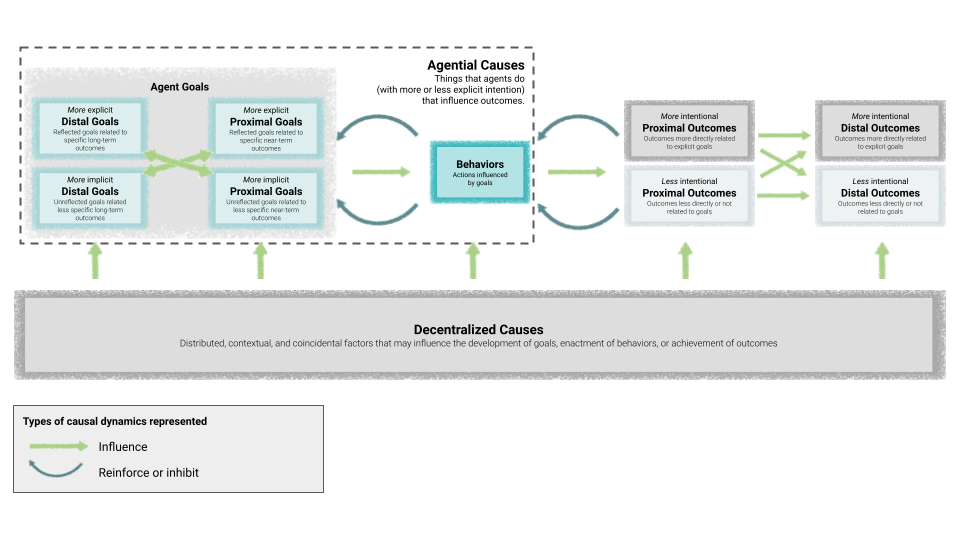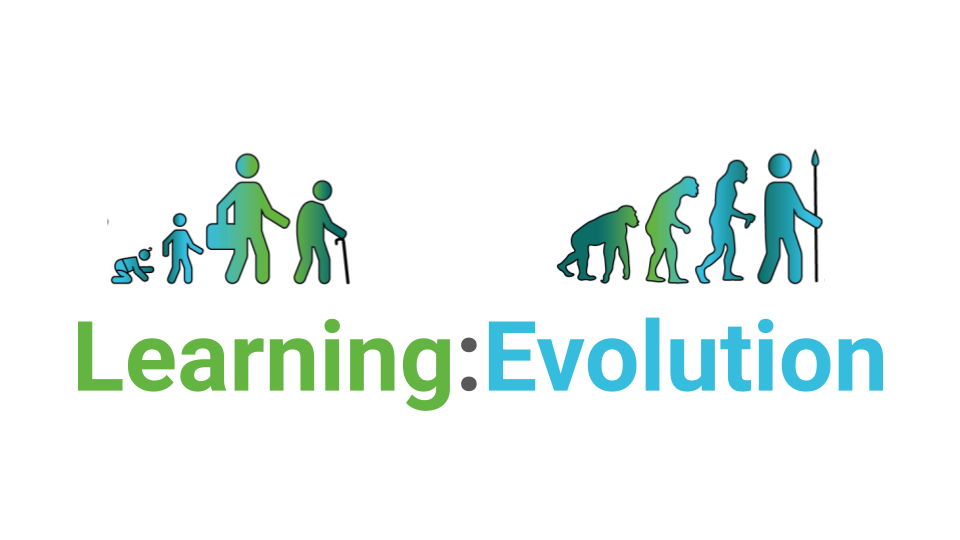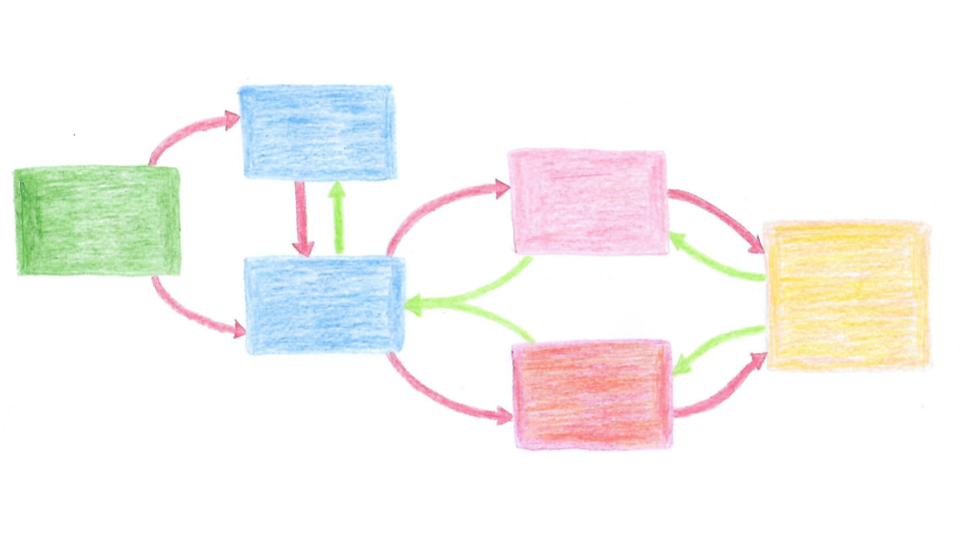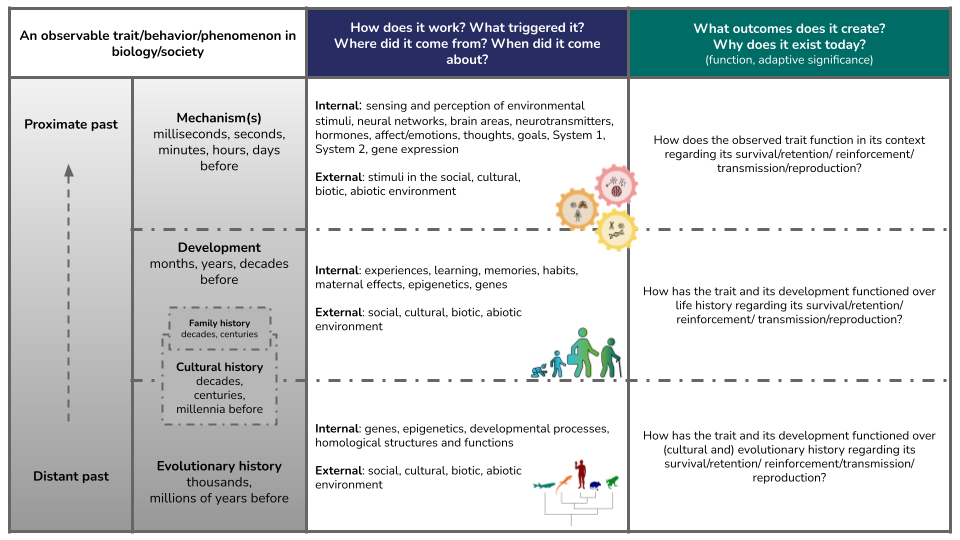Machine Behavior & Agency
Tools for Thinking about the Origins, Development, and Functioning of Artificial Intelligences
“Machines have mechanisms which produce behaviour, undergo development that integrates environmental information into behaviour, produce functional consequences that cause specific machines to become more or less common in specific environments, and embody evolutionary histories through which past environments and human decisions continue to influence machine behaviour.”
Information technologies seem to have an increasing reach into the everyday lives and communities of humans around the world. How humans come to learn about and understand this rising tide of diversely intelligent agents, is a pressing question for schools and communities, globally.
The concept of Machine Behavior invites us to use our understandings of the evolution and behavior of biological organisms to understand the computational agents of our own making. This requires us to engage in a careful and critical analogy mapping of the similarities and differences between humans and machines.
Established thinking tools such as Tinbergen’s Questions (see box to the right), provide a valuable framework from the biological sciences that also may help us understand many phenomena of interest in computer sciences.
Still – there remains an expansive landscape of questions and opportunities for helping students explore the origins, development, and functions of artificial intelligences in our world.
Tinbergen's Questions
Leading researchers across fields of Artificial Intelligence, Cognitive, and Behavioral Sciences have argued (Rahwan et al 2019) that the same scientific framework that has helped us understand the behavior of biological agents, can also help us understand the artificial agents that are culturally co-evolving with society. Tinbergen’s Questions offer a way of thinking about the origins and evolution of functional mechanisms within intelligent machines, and within the human-machine systems that are rapidly emerging as drivers of planetary change.
See more at the MPI-B Center for Humans and Machines page on Machine Behavior
Developing educational innovations around Machine Behavior
Based our on Educational Innovation Research Model, we have identified some basic educational research and design needs for developing this space. Explore research and design questions for education in our QuestionBase to the right, or learn more through the introductory videos below.
Machine Behavior – QuestionBase
Educational research and design questions related to the concept of Artificial Intelligences and Human-Machine Behavior.
Machine Behavior



References
Miao, F., Holmes, W., Huang, R., & Zhang, H. (2021). AI and education: A guidance for policymakers. UNESCO Publishing. https://unesdoc.unesco.org/ark:/48223/pf0000376709.locale=en
Rahwan, I., Cebrian, M., Obradovich, N., Bongard, J., Bonnefon, J.-F., Breazeal, C., Crandall, J. W., Christakis, N. A., Couzin, I. D., Jackson, M. O., Jennings, N. R., Kamar, E., Kloumann, I. M., Larochelle, H., Lazer, D., McElreath, R., Mislove, A., Parkes, D. C., Pentland, A. S., Roberts, M. E., Shariff, A., Tenenbaum, J. B., & Wellman, M. (2019). Machine behaviour. Nature, 568(7753), 477–486. https://doi.org/10.1038/s41586-019-1138-y
UNESCO (Ed.). (2022). K-12 AI curricula: A mapping of government-endorsed AI curricula. https://unesdoc.unesco.org/ark:/48223/pf0000380602.locale=en
Other tools for Understanding Agency
Machine behavior is one important lens for understanding the concept of agency and the diverse intelligences that are evolving around our planet. Learn more about general principles and concepts across other contexts in related project pages below.

Understanding Agency
Tools for thinking about the origins, diversity, and flexibility of goal-directed behaviors

Goals, Behaviors, and Outcomes
How can we understand the causal relationships between goals, behaviors, and outcomes?

The Learning:Evolution Analogy
Learning and Evolution are processes that are both similar and different, in important respects. What can humans learn by comparing these processes?

Agency in Evolution Education
A page for researchers interested in the concept of agency as it relates to learning theories of evolution, including natural selection in biological systems.
This evolving collection of concepts, tools, and resources is being developed to support diverse learners around the world in strengthening your own conceptual understanding of the intelligent agents that pervade our world. It is the result of a synthesis based on our OpenEvo Educational Design Concept, combined with scientific inspiration from the Diverse Intelligences Summer Institute and Prosocial Schools.
We welcome collaborations with students, teachers, and researchers interested in advancing the educational potential of understanding agency.


